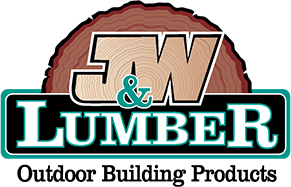
More and more households are looking for ways to reduce their environmental impact and live more sustainably. With the push toward healthier foods from local sources, many people have started to gather some of their produce from the most local source possible: their own backyards. Planting an edible garden has never been easier, even if you live in a home with limited outdoor space.
Building a raised garden box is the easy-to-manage, eco-friendly answer to go green while growing greens. Here’s why.
Redwood: sturdy and sustainable
To create the lowest environmental impact from your at-home garden, look for raised garden box kits made from sustainable materials. At J&W Lumber, our garden box kits are crafted from redwood, an extremely environmentally friendly natural material.
Redwood is a material choice you can feel good about. Not only is it attractive, sturdy, and stands up to the elements, redwood is also renewable, recyclable, and biodegradable. In fact, 80% of California’s managed redwood forests are certified sustainable. If you’re interested in digging into the details of redwood’s sustainability, explore this guide from the US Department of Agriculture: “Cradle-to-Gate Life-Cycle Assessment of Redwood Lumber in the United States.”
Pro tip: stay away from pressure-treated lumber for your garden box – especially if you’re planning to plant edible greens. The chemicals used in pressure-treated lumber may leach into your fruits and veggies.
Fewer carbon emissions and plastic waste
Growing your own food in your backyard (or side yard, or patio, or balcony) eliminates the environmental impact of commercial planting, harvesting, and transportation. Your eco-conscious decision to install a garden box at home will have a direct impact on the level of fossil fuels NOT consumed during the process of commercially growing and distributing produce.
Additionally, at-home DIY gardening will reduce the amount of plastic packaging you consume, both from pre-packaged produce and in-store produce bags.
One step further: composting
To make the food from your raised garden box as eco-friendly as possible, skip the chemical fertilizers and nourish your plants with compost from your own food waste. Composting is an easy way to get even more value from food while giving your garden a boost from key nutrients.
For small spaces, you may use a trash can or other self-contained bin. If you have a large outdoor space, consider building a three-crate system using lumber. Western red cedar is the perfect choice for constructing a bin system, as the wood itself resists rot from moisture and pests and will stay sturdy for years to come.
Going green is easier than you may think
Decreasing your environmental impact starts by taking a few small steps to change your consumption habits. Installing a raised garden box and tending to your own garden won’t solve the earth’s climate crisis overnight, but it will help you feel better about how your actions impact the environment. By setting the example of how easy (and delicious!) growing your own fruits and veggies can be, you may end up starting a trend among friends, family, and neighbors who are looking to make their own eco-friendly changes, too.
Ready to build your own raised garden box? We’ve got everything you need at our J&W Lumber locations or in our online store.
